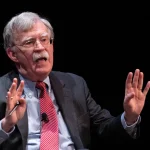Vietnam and Murphy Oil Deepen Investment in Oil and Gas Sector
Vietnam is reaffirming its long-term commitment to energy cooperation with the United States as part of its broader strategic goals, following a high-level meeting in Hanoi between Vietnam’s Party General Secretary and Eric Hamley, President and CEO of Murphy Oil Corporation, a U.S. based oil and gas company.
The talks focused on strengthening energy investment, with both sides highlighting the importance of oil and gas exploration as a pillar of the Vietnam–U.S. comprehensive strategic partnership, which was officially elevated in 2023.
The Vietnamese leader praised Murphy Oil’s ongoing presence and future plans in the country’s energy sector, calling energy cooperation a “vital foundation for economic growth, regional stability, and strategic trust.” He added that Vietnam welcomes expanded foreign investment in energy, particularly from long-term, reliable partners like the U.S.
Murphy Oil, which has operated in Vietnam for over two decades, is expected to ramp up its offshore exploration and production efforts, aligning with Vietnam’s National Energy Development Strategy through 2030 with a vision to 2045. This roadmap includes increased energy security, diversification of supply, and a push toward cleaner and more sustainable production practices.
Hamley expressed appreciation for the Vietnamese government’s support and reiterated Murphy’s commitment to Vietnam as a “strategic and responsible partner.”
The visit comes amid a shifting energy landscape in Southeast Asia, where regional players are balancing traditional fossil fuel development with renewable initiatives. For Vietnam, bolstering ties with American energy firms serves not only economic interests but also geopolitical ones, particularly amid tensions in the South China Sea.
Murphy Oil’s expanded engagement may also reflect a broader U.S. effort to enhance its energy footprint in the Indo-Pacific, counterbalancing China’s influence while supporting sustainable development and regional energy stability.



